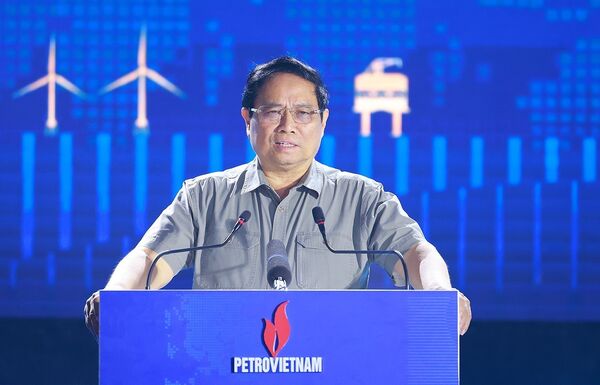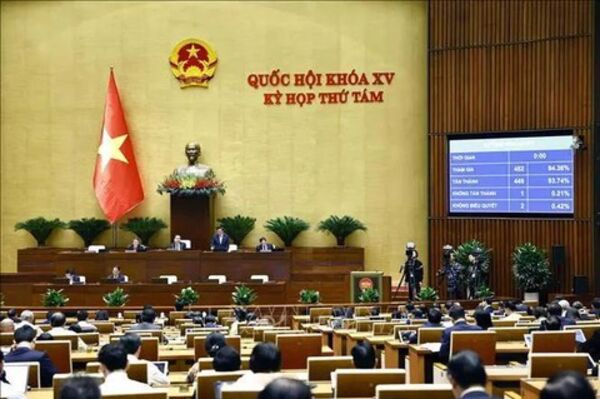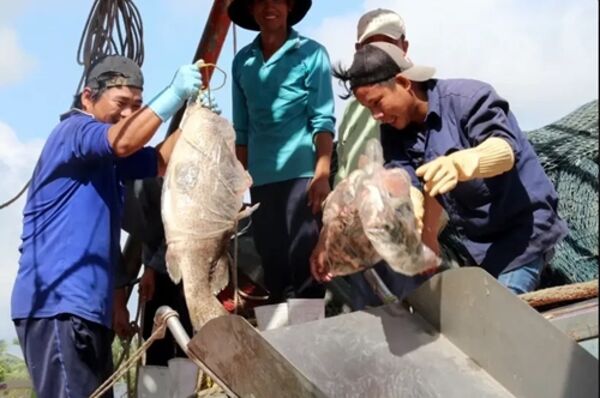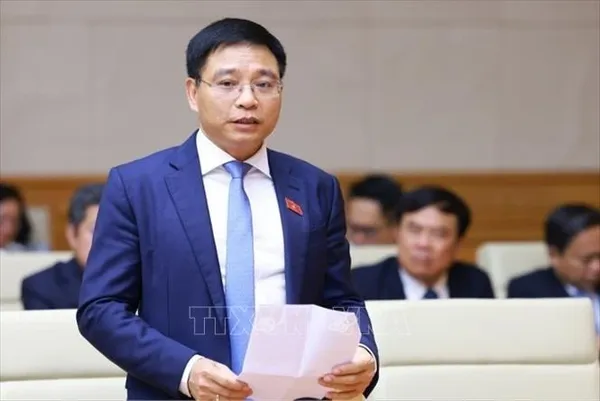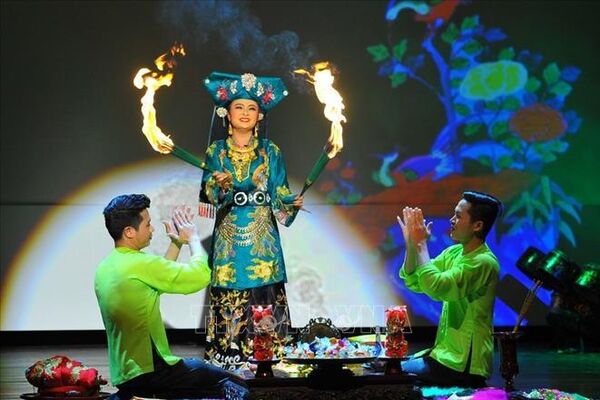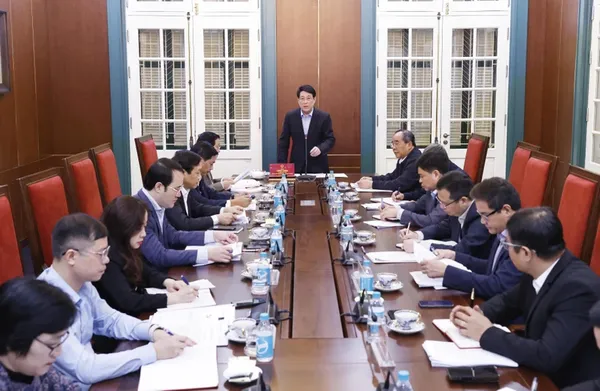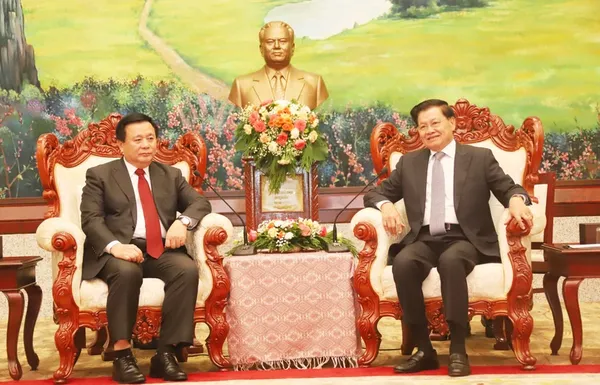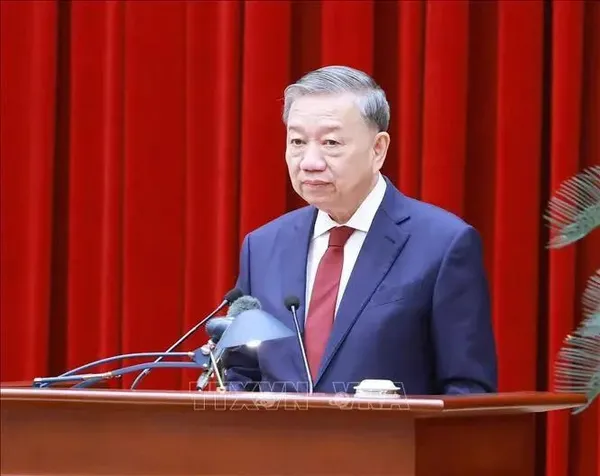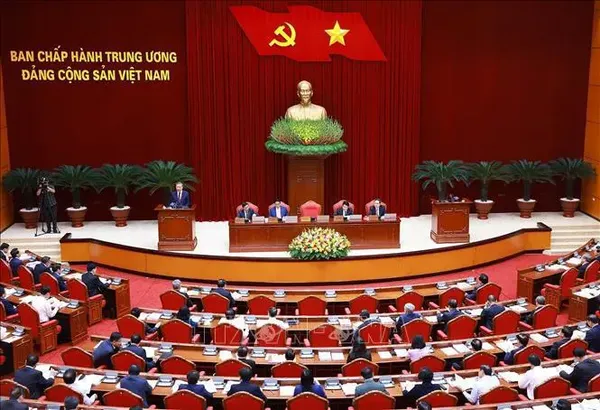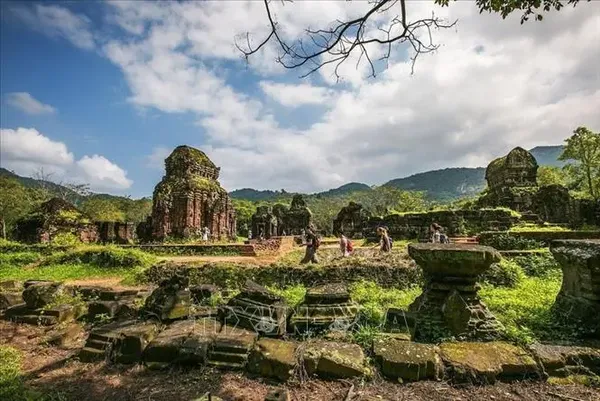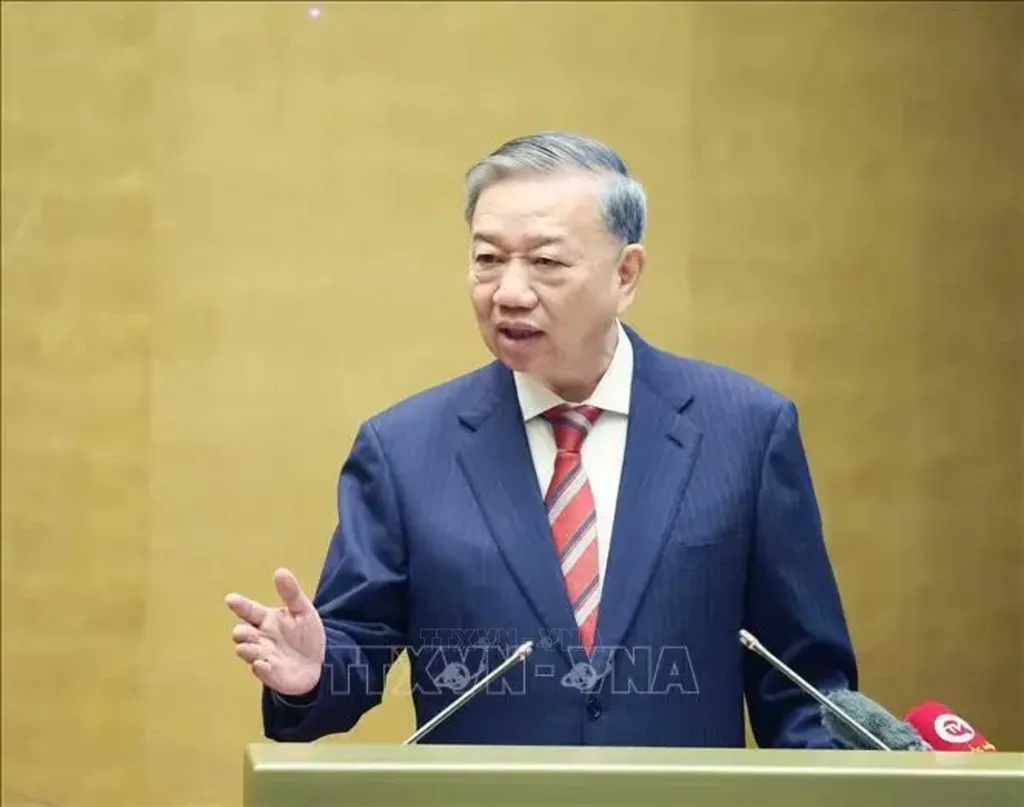 |
| Party General Secretary To Lam speaks at the conference on December 1. (Photo: VNA) |
Hanoi (VNA) – Party General Secretary To Lam, while addressing a national conference in Hanoi on December 1, emphasised the need to further create institutional breakthroughs, resolve all difficulties, obstacles, and bottlenecks to unlock resources and strongly accelerate administrative reforms thus fostering a favourable environment for development.
Held by the Politburo and the Party Central Committee’s Secretariat, the hybrid conference aimed to review the implementation of Resolution No. 18-NQ/TW, dated October 25, 2017, of the 12th Party Central Committee on “Several issues on the continued reform and rearrangement for a lean, effective and efficient apparatus of the political system.” It also looked into a report on the socio-economic situation for the first 11 months of 2024, measures to accelerate socio-economic development in 2025, and solutions to institutional bottlenecks.
The Party chief said institutional reform for development is not a task of sole legislative bodies but a shared responsibility of the entire political system, along with each cadre and Party member involved in drafting and implementing laws.
Socio-economic development guidelines and policies are now well-established, he stressed, calling for immediate action for development.
According to the Party leader, to achieve the upper middle-income status by 2030 and the high-income one by 2045, Vietnam must continuously secure double-digit economic growth in the coming years. The Party Central Committee, the Government, and the National Assembly are focusing on resolving bottlenecks and establishing foundational factors that will enable the country to "take off," especially issues related to transport and energy infrastructure, human resources, institutional reforms, and administrative procedures.
He urged localities, basing on the Party and State’s general policies, to proactively promote their proactiveness and creativity for development, saying that each agency, unit, and locality should set specific targets to help achieve the nation’s overall objectives.
More than ever, cadres and Party members must uphold their strong sense of responsibility, set an example in performing their duties in the spirit of putting the common interests above all, and boldly embrace innovation, creativity, and breakthroughs for national developmen. In addition to efforts by the Party, Government, and State, the active participation and support of the people are also essential, he went on.
Economic development must be closely linked to the settlement of social issues and environmental protection to further improve the material and spiritual well-being of the people, the General Secretary stated, underlining the importance of effectively implementing social welfare policies, eradicating poverty, and eliminating temporary and dilapidated houses.
Regarding Party congresses at all levels ahead of the 14th National Party Congress, he emphasised that these events - from the grassroots to communal, district, and provincial levels as well as those of central agencies - must serve as a broad political activity throughout the Party to discuss the vision, goals and tasks for advancing national development and prosperity in the new era.
The documents to be presented at the 14th National Party Congress have been meticulously and scientifically prepared by the Party Central Committee. The task of Party committees at all levels is to promptly organise discussions among officials and Party members to contribute their opinions to these documents, he said.
The Party Central Committee will continue to gather opinions from Party organisations, scientists, intellectuals, and people from all walks of life to refine and finalise the documents, which must be concise, easy to be remembered, and easy to be implemented, the leader went on.
He requested all-level Party committees to prepare personnel for the new term in accordance with the provided guidelines, and ensuring a highly qualified and capable contingent of cadres to meet the new development requirements. He noted that personnel affairs are a duty of the Party, so Party committees at all levels must strictly adhere to the Party's Statutes as well as the Party’s regulations and the legal provisions on the work.
Regarding the streamlining of the political system's apparatus, General Secretary Lam asked all authorities and sectors, from the central to grassroots levels, to show the highest political determination in implementing this policy, stressing that this is a particularly important task and a revolution that not only pertains to the size or quantity but must make qualitative changes to activities of the political system.
He said that each level and sector must evaluate and propose a suitable model for their respective agencies and units so that a plan to rearrange the political system's apparatus is completed and reported to the Party Central Committee in the first quarter of 2025.
The Party chief noted that the streamlining should be carried out urgently but also prudently, with principles adhered to and opinions from experts, scientists, as well as international experiences taken into account.
Streamlining the apparatus must go hand in hand with streamlining the payroll and restructuring the staff who must have sufficient qualities and capabilities matching their duties, he said, asking each agency and unit to properly carry out the policies and regulations concerning officials, Party members, civil servants, public employees, and workers affected by the reorganisation to ensure fairness, publicity and objectivity./.
